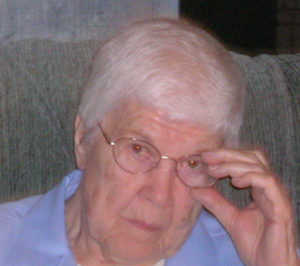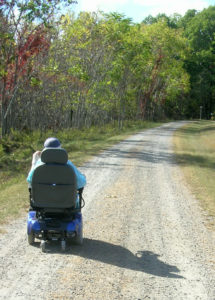Yeast.
I have to laugh. This story is about yeast. This story is about remembering. And most of all this story is about knowing just how much more we are than we often imagine. And it is about how connecting with guidance can help you explore that, as well as to explore what you might do with these tools.
Bear with me a brief while to get there. I need to tell another brief story first for this to make sense.
I spent a large portion of my life in a battle against a rare form of arthritis. I had Reactive Arthritis, Ankylosing Spondylitis and a tongue twister – Diffuse Idiopathic Skeletal Hyperostosis. That last one goes by the moniker DISH. These are terrible and destructive diseases.
These are and were caused both by a genetic susceptibility – an antigen called HLA-B27 and an infection. Scientists love to name things with terrible names. This antigen is one of the “friend and foe” antigens. These antigens are the ones you hear about in medical dramas and at doctors office when they talk about doing a tissue match for organ transplants. These antigens are like flags that cover the surface of cells telling our immune systems – “hey, I am one of us, please don’t kill me”.
My disease is/was an autoimmune disease. It is/was caused by bacteria pretending to be “me” / “us”. The bacteria has a part that looks very much like HLA-B27. When I was infected with one of these as a kid, my body recognized the invader and fought in. But the tricky bugger pretended to be “me” / “us”. And my immune system stopped fighting. This continued as an on again off again war for decades.
The battleground was my body. And the battlefield damage from that war was my spine, my neck, my pelvis, my eyes and more.
In 1997 I cured my arthritis. Doctors say that is impossible. I did it anyway. That story is a long story in its own right, fraught with difficulties, pains and perils. But that is for another time. The story today is about yeast.
A week or two ago I was lamenting to Frank that I was unable to grow yeast in my house. I have tried on and off for the last decade to bake bread, brew beer, make ginger bear, ferment grapes into wine, make yogurt and more. Ever single time that ended with me throwing it all out.
I purchased yeasts of a dozen types tailored to each purpose. I treated them gently. I abused them. I nurtured them. I ignored them. I tried everything I could think of. Yet, not once could I get yeast to grow.
I worried that the water was bad. Perhaps chlorine residual, or something else was killing them. Maybe I even had a bacteriophage (a virus that infects and kills bacteria) that targeted yeast. I tried several types of spring water, distilled water, and others. Nothing. Yeast would not grow.
I borrowed starter from friends. It died. It didn’t seem to matter what I did. The yeast always died.
With the virus and being stuck in the house, I thought again about trying to make bread myself. But my attempts at creating sourdough starter were going no where.
As I talked with Frank about that, he stopped me and asked as he always does – “What do the guys have to say?”
I have been doing my own version of communing with guidance since I was a child. For most of my life I set that aside as I did professional work. In that work, proper “scientists” would reject anything I had to say if they ever thought for an instance that I believed in such ‘nonsense’. My “credibility” would be toast. And so I set it aside for a good long while.
In the past two decades going to the Monroe Institute and getting to know Frank, I have let my hair down again, and returned to my roots. I learned Franks Intuitive Linked Communication version of how to connect.
And so, I asked “the guys” – “What is going on?” “Why is the yeast dying?”
The answer they replied with was immediate and blew me away. They pointed out that I had learned to do esoteric energy work and that I had gotten quite good with it. I knew all of that of course. It is part of my day to day “normal” that most people think is “impossible”.
They went on to say that in using those techniques that I had suppressed the growth of the bacteria that caused my arthritis as a part of the larger battle against it. I knew that played a part of the larger story of how I cured the arthritis.
They said that what I failed to realize is just how powerfully I had invoked that. They said that the reason the yeast wouldn’t grow anywhere around me was because “I wouldn’t let it. I was suppressing it.”
Well, duh! So, right then and there, I changed my energetic pattern so that I would continue to protect my body from a resumption of the arthritis, and at the same time to allow and support the yeast and other beneficial organisms that I grow.
Well that was fascinating. Frank and I continued our discussions and wrapped for the night.
Meanwhile, back in my dining room, I had been trying for a week to get sourdough starter to start with no success. Nothing was growing at all. Before I went to bed I checked on it one last time. It tasted liked flour and water. Nothing. hmmm… Perhaps I can start tomorrow.
Not long after I went to bed. And I thought of a plan for the next day.
I awoke in the middle to the night, as I often do. That too is another long and fascinating story for another time.
I got up and went to the kitchen for a glass of water. Along the way I stopped and checked my proofer where the sourdough starter was sitting nice and warm and had been for over a week. And what do you know, the thing was boiling over.
I opened it and smelled – yeasty!! I tasted it. It was doughy, sour and wonderful. It was only four hours or so since Frank and I chatted and since I changed my energy pattern.
In the week that followed, I have started several different sourdough starters. All of them have worked. I also found a very old, undoubtedly dead package of Red fast rising yeast hinting in my cupboard.
I threw that in a jar with some water and flour. Shazam, it went bonkers. And the next day I made bread for the first time in decades.
The tools we have available to us in connecting with guidance are immensely powerful and varied.
My journey, with the arthritis, with the yeast, and with so many other things has been a journey beyond doubt. It is a journey of remembering.
Yours can be as well.
Dirk


